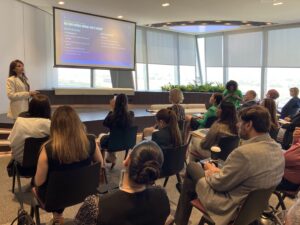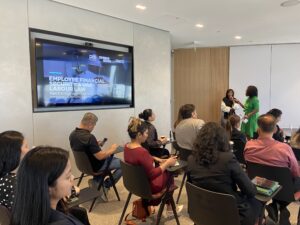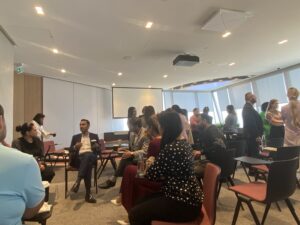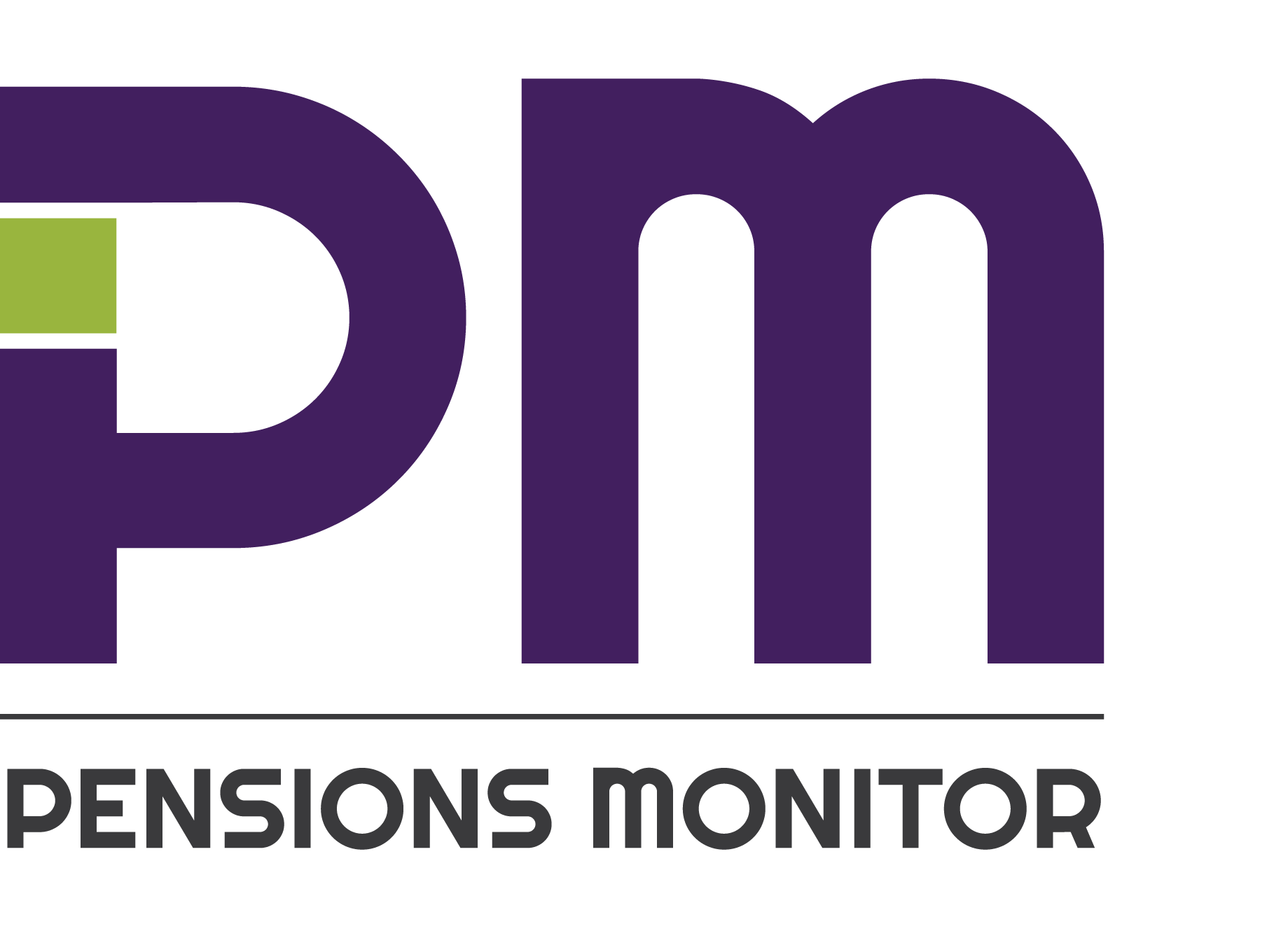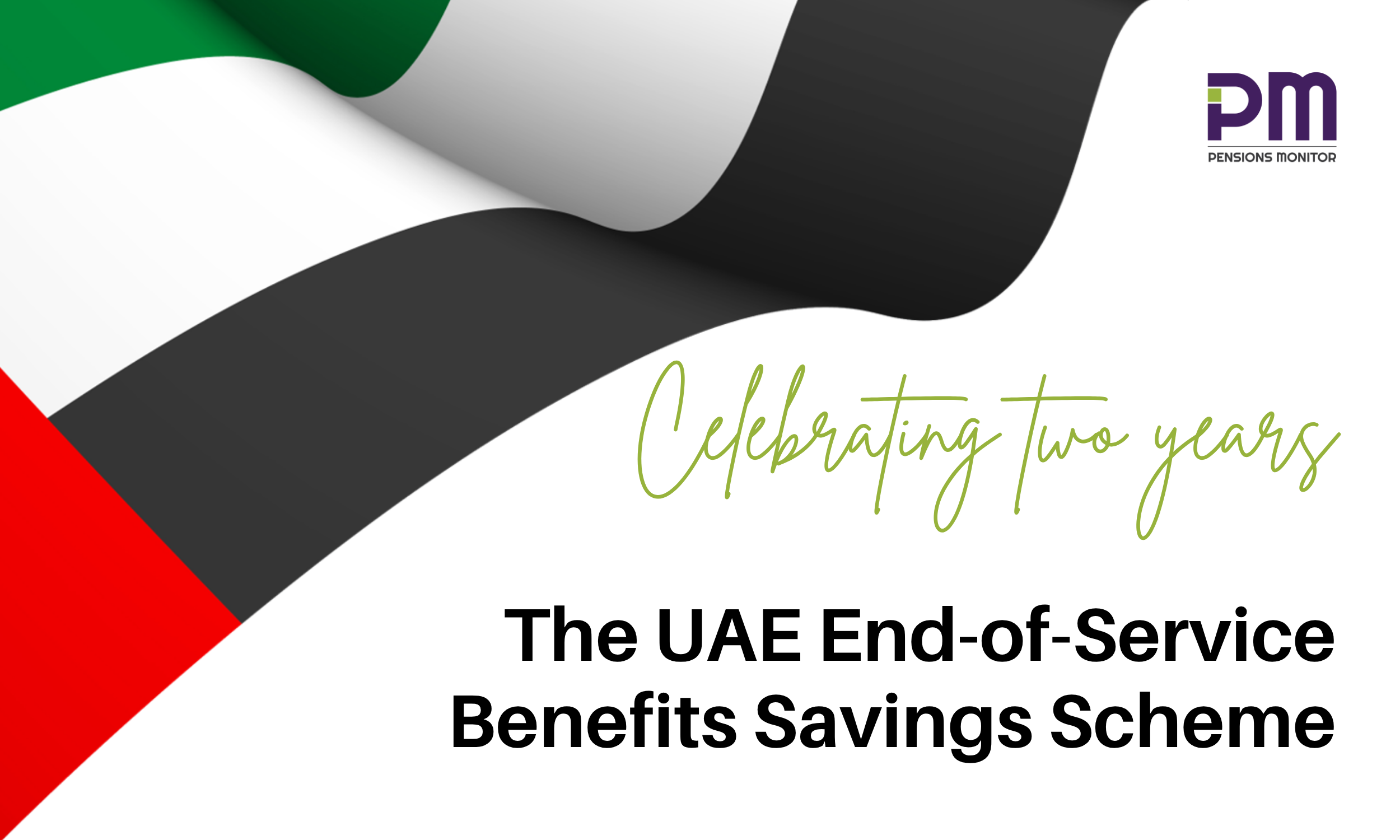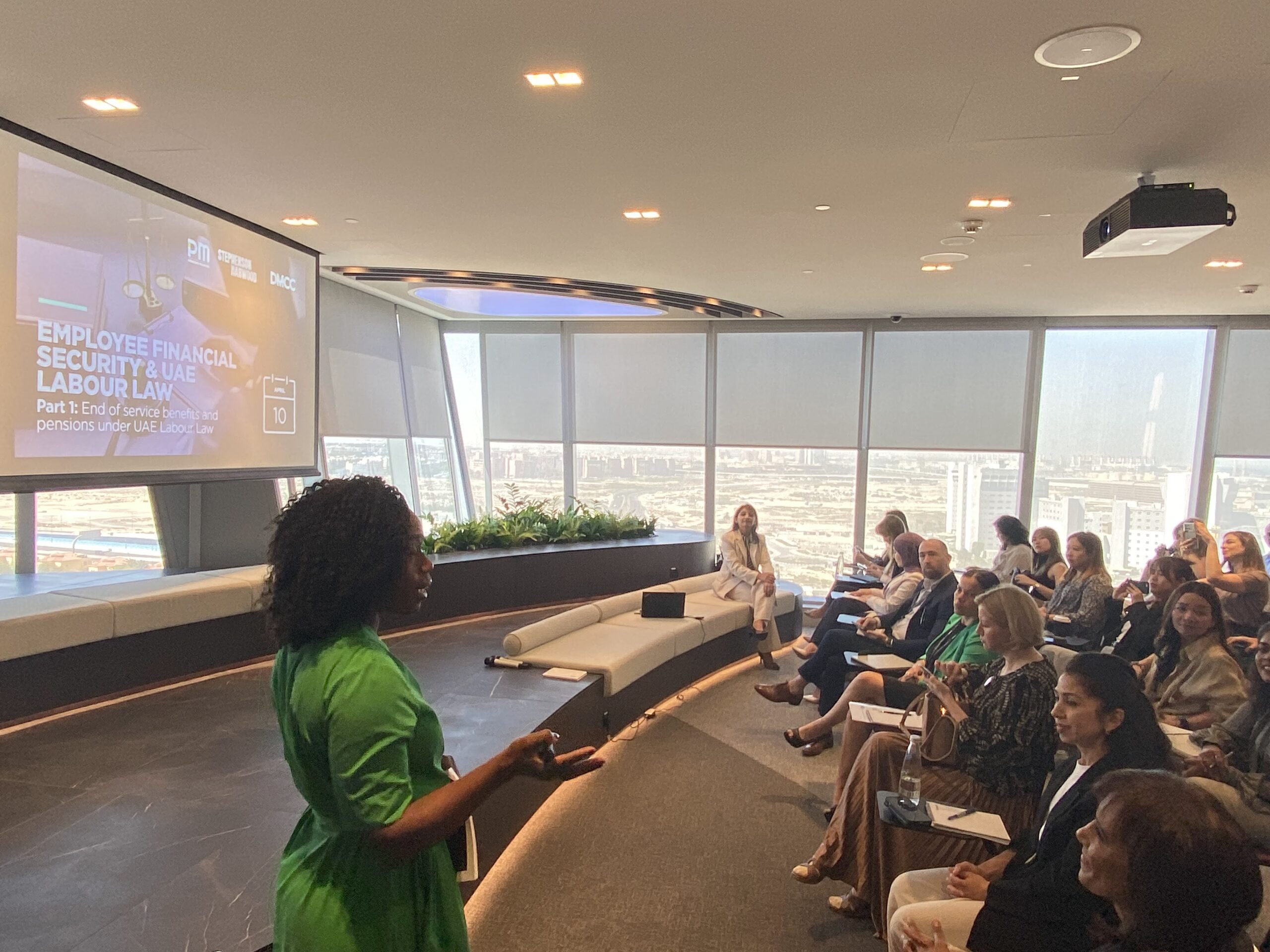
Stephenson Harwood and Pensions Monitor, in partnership with DMCC (Dubai Multi Commodities Centre), recently hosted an informative session for its members to build awareness around the UAE’s new End-of-Service Benefits (EOSB) Savings Scheme. Held on April 10 at the DMCC Uptown Dubai Business Centre, the session provided valuable practical guidance for employers on transitioning from the traditional gratuity system to the new scheme.
The session featured expert insights from Emily Aryeetey, Partner at Stephenson Harwood, and Nisha Braganza, Director at Pensions Monitor. Together, they shared an overview of the EOSB Savings scheme, market developments, compliance requirements, and how proactive EOSB planning can help companies become employers of choice in the UAE.
Around 50 DMCC member companies attended the event, including HR professionals, finance leaders, and general managers from various industries. Attendees participated in engaging discussions and live polls that provided a real-time snapshot of how companies are currently approaching the EOSB changes.
A key finding from the poll revealed that while nearly all respondents still use the traditional gratuity system, 29% are considering moving to a workplace savings scheme — a sign of growing interest in long-term employee benefits reform. However, another 70% admitted to not having taken any steps in that direction yet.
The poll also shed light on the challenges companies face in this transition. The lack of clear guidance (54%), system-related issues, and challenges with employee communication were cited as the top three concerns.
Interestingly, employee awareness of the new scheme isn’t entirely lacking — 75% of companies said that their employees have at least some understanding of the new scheme. Yet, most employers have not officially discussed the scheme with their workforce, due to uncertainty or lack of preparation.
When it comes to selecting an EOSB Fund Manager, companies said they would prioritize market reputation (67%), fund performance (63%), quality of service (58%), and associated costs (54%). Encouragingly, 63% of companies also plan to take employee preferences into account.
The session clearly highlighted the strong need for more guidance and hands-on support as companies consider shifting to a workplace savings model and so, DMCC’s efforts to facilitate such conversations have been both timely and valuable for its members.
But the conversation is far from over. DMCC, in continued partnership with Stephenson Harwood, will host Part 2 of this awareness series on Employee Wills and Succession Planning on May 29, led by Tasleem Sayani from Stephenson Harwood. This upcoming session promises to offer further strategic insights for businesses and individuals preparing for the future.
If you are a DMCC member and would like to register for this session, please click here: Employee Financial Security and UAE Labour Law
In the meantime, if you have any questions or if you would like a similar session to be conducted for your organization, feel free to reach out to us at info@pensionsmonitor.com.
Event photo gallery
